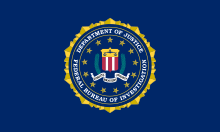Critical Incident Response Group
| Federal Bureau of Investigation | |||||||||||||||||||||||||||||||||||||||||||||||||||||||||||
|---|---|---|---|---|---|---|---|---|---|---|---|---|---|---|---|---|---|---|---|---|---|---|---|---|---|---|---|---|---|---|---|---|---|---|---|---|---|---|---|---|---|---|---|---|---|---|---|---|---|---|---|---|---|---|---|---|---|---|---|
| Common name | Federal Bureau of Investigation | ||||||||||||||||||||||||||||||||||||||||||||||||||||||||||
| Abbreviation | FBI | ||||||||||||||||||||||||||||||||||||||||||||||||||||||||||

|
|||||||||||||||||||||||||||||||||||||||||||||||||||||||||||
|
|||||||||||||||||||||||||||||||||||||||||||||||||||||||||||
| Notables | |
|---|---|
| People |
|
| Significant Operations | |
The Critical Incident Response Group (CIRG) is a division of the Criminal, Cyber, Response, and Services Branch of the United States Federal Bureau of Investigation. CIRG enables the FBI to rapidly respond to, and effectively manage, special crisis incidents nationwide.
In response to public outcry over the standoffs at Ruby Ridge, Idaho, and of the Branch Davidians in the Waco Siege, the FBI formed the CIRG in 1994 to deal more efficiently with crisis situations. The CIRG is designated to formulate strategies, manage hostage or siege situations, and, if humanly possible, resolve them "without loss of life," as FBI Director Louis Freeh, who assumed the post four-and-a-half months after the Waco fire, pledged in a 1995 Senate hearing.
CIRG was intended to integrate tactical and investigative resources and expertise for critical incidents which necessitate an immediate response from law enforcement authorities. CIRG will deploy investigative specialists to respond to terrorist activities, hostage takings, child abductions and other high-risk repetitive violent crimes. Other major incidents include prison riots, bombings, air and train crashes, and natural disasters.
Each of the major areas of CIRG furnishes distinctive operational assistance and training to FBI field offices as well as state, local and international law enforcement agencies.
...
Wikipedia


